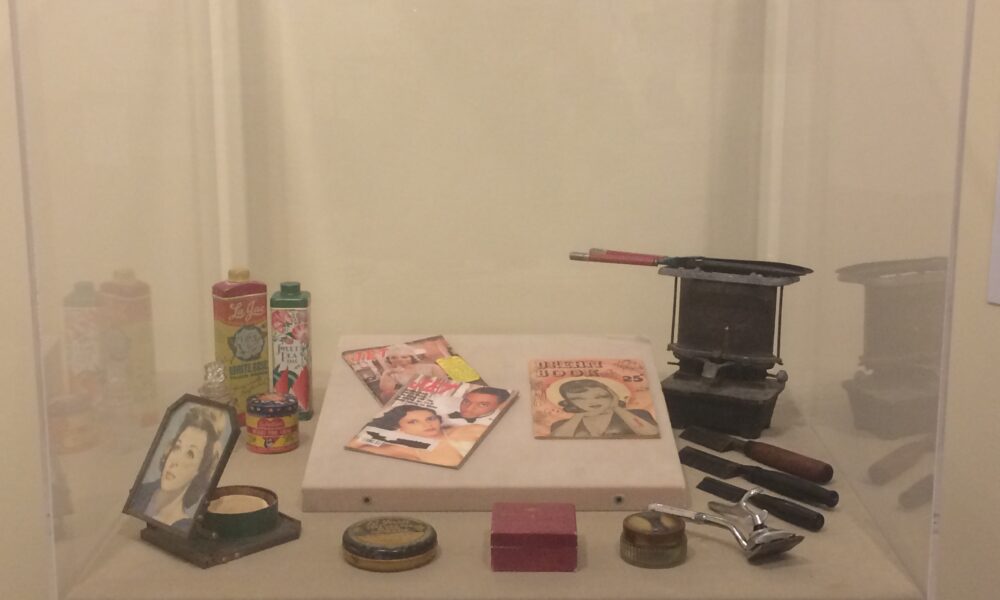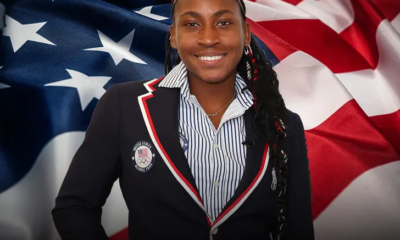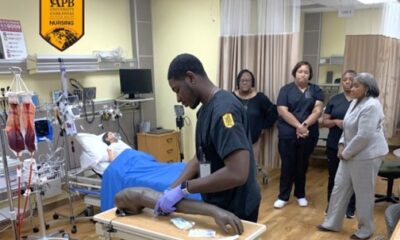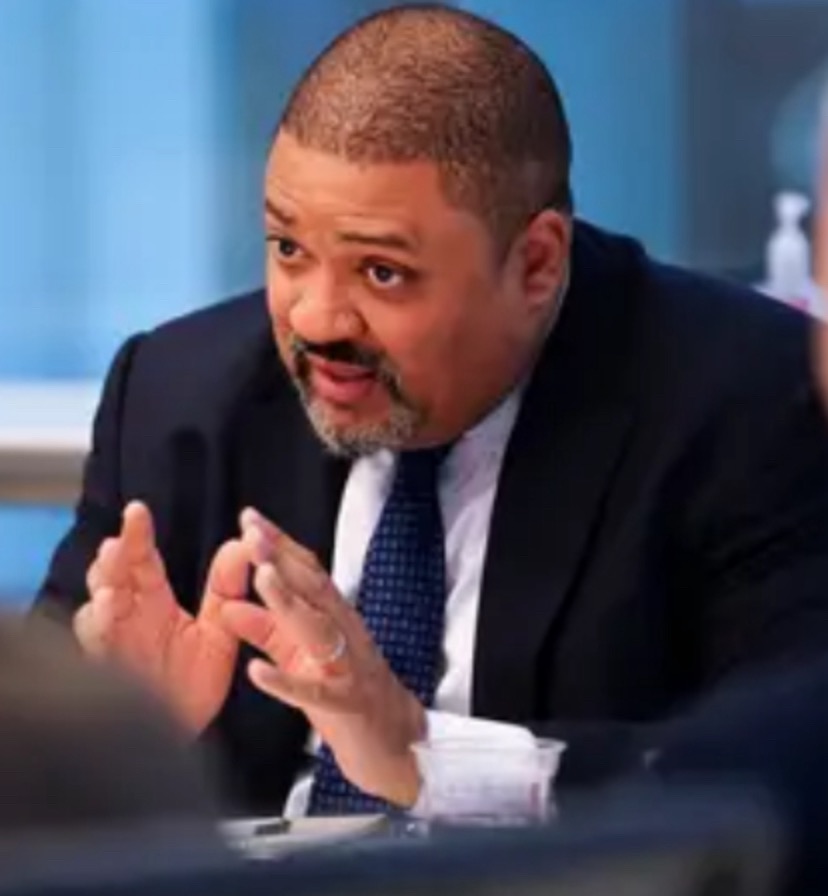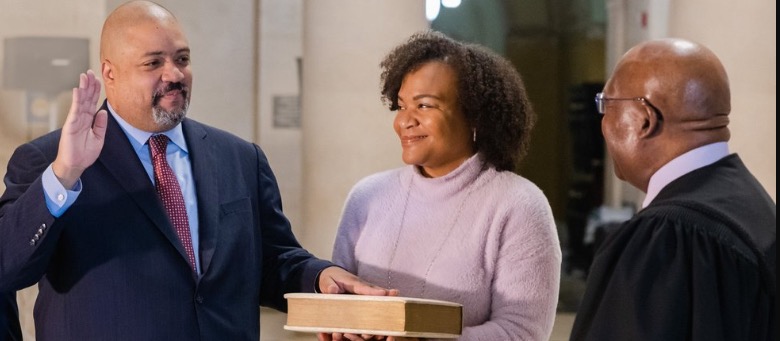Ebony Brown worked quickly on a client as another one sat patiently with conditioner on her hair. The hands of the 29-year-old stylist led a choreographed beauty routine so familiar to African American women it has been a cultural touchstone for generations.
“I’ve been doing hair since I was 10-years-old,” Brown said. “I was tender-headed and didn’t want anyone to do my hair, so I started doing it myself. People would ask, ‘Who did your hair?’ That’s how I became a stylist.”
The “Don’t Touch My Crown” exhibit at The Mosaic Templars Cultural Center in Little Rock captures the unique significance of hair for African American women.
“We had been speaking casually as a staff about doing an exhibition on hair almost two years ago, but the idea really took off when we did a collaborative exhibit with the ESSE purse museum on African American women and their accessories,” said Christiana Shutt, the center’s executive director. “We displayed a small iron comb (like the ones used to press hair) with the accompanying heating unit. I was standing near the entrance of the exhibit on opening night, and I noticed that every African American woman who walked in the door immediately recognized the comb and then had to share some memory about the experience of getting her hair pressed.”
Shutt and her team sourced items from Henry Linton at the University of Arkansas at Pine Bluff, Trammel’s Beauty Supply in Pine Bluff, and Velvatex College of Beauty Culture in Little Rock as well as some items from the Museum’s collection.
The two pioneers of African American hair care are featured in the exhibit, Annie Malone and Madame C.J. Walker. Malone started making beauty products and training women around the world to sell. She opened Poro College in St. Louis as the headquarters for her business. Madame C.J. Walker, born Sarah Breedlove, was introduced to Malone when she moved to St. Louis. In time, Walker parlayed a line of shampoos and creams she created into the successful enterprise that resulted in her recognition as America’s first African American millionaire.
According to Nielsen, African American women spend more than seven-billion-dollars annually on their crowns which is nine times more than other women . Competitions and shows like those hosted by the Bronner Brothers in Atlanta are legendary and highlight the latest trends. And, cosmetic companies with a traditionally white customer base vie for a segment of the market.
“This was the beginning of the unfolding of a sad story.” Connie Curry, Black Hair Care Sales and Marketing Consultant
“By the end of year 2000, many black owned manufacturing companies and beauty supply stores had either been sold or gone out of business,” says Connie Curry, a sales consultant with more than 25 years of experience in the hair care industry. “This was beginning to an unfolding of a sad story. At one time, black owned beauty supply stores were known as the beacon and headquarters to gain knowledge on what to use on black hair.”
Styles like the Gheri Curl, made popular by superstar Michael Jackson, required several products and retail drug stores began stocking them in special aisles for African American consumers. According to Curry, Korean-owned beauty supply stores followed, offering products for African Americans, and stores owned by African Americans began to diminish.
“While black beauty supply stores were diminishing, so were black owned manufacturing companies,” she explains. “Today, very few mainstream companies, approximately 5% are black owned. While 70% beauty supply stores are owned by Koreans. Most businesses have been purchased by white and other ethnic companies.”
The natural hair movement is the latest chapter in African American hair care. But, regardless of how it’s styled, a woman’s hair is still her “crown.” At Mosaic, it is celebrated in all its glory.
The “Don’t Touch My Crown” exhibit at Mosaic runs through the end of August. As Shutt said, we knew we were “definitely onto something different and exciting which would encourage people to see more of themselves and their stories in our exhibits.”
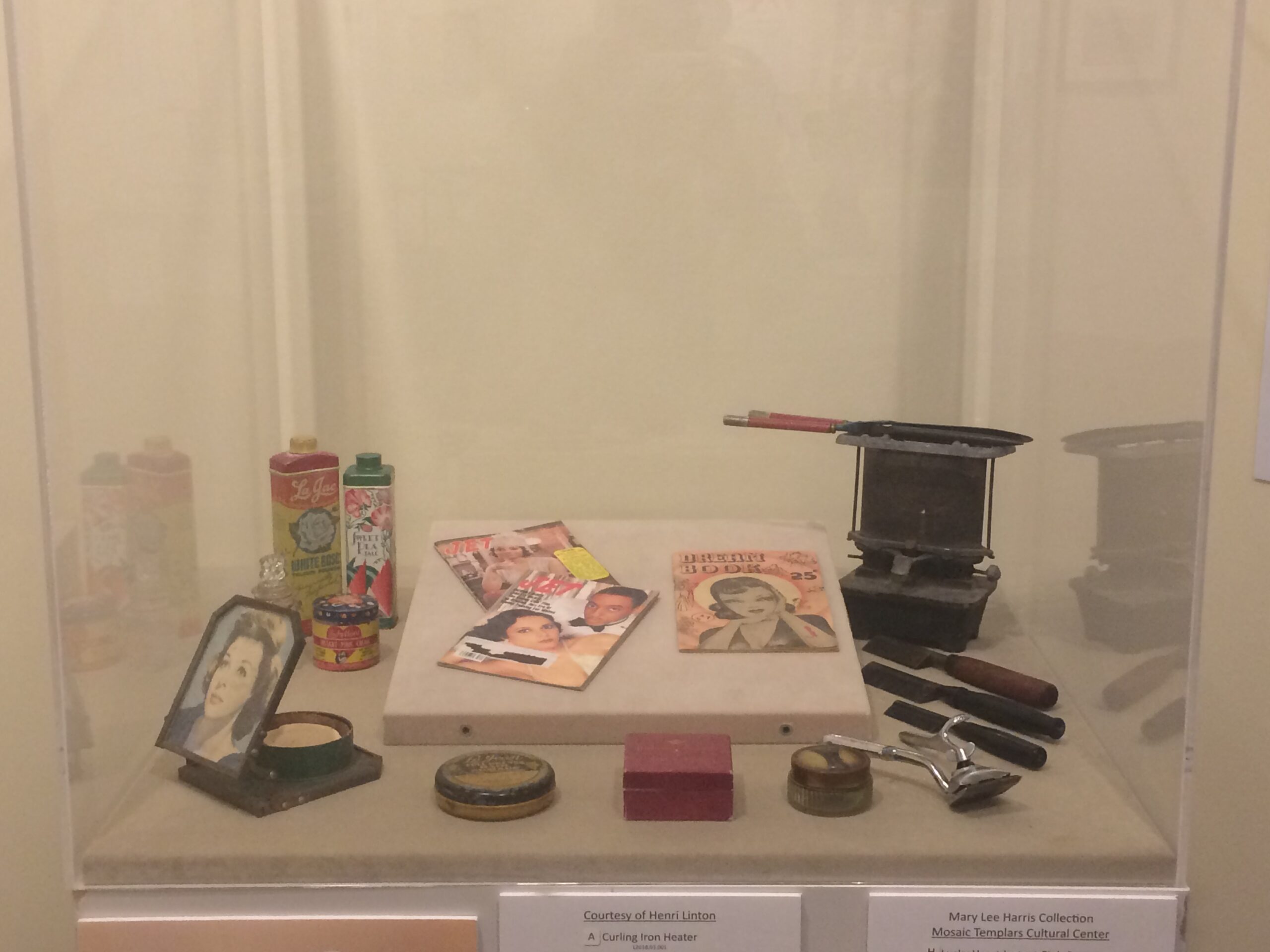

 Black History4 years ago
Black History4 years ago
 Black History5 years ago
Black History5 years ago
 Black History3 years ago
Black History3 years ago
 Black History4 years ago
Black History4 years ago
 Black History4 years ago
Black History4 years ago
 Black History8 years ago
Black History8 years ago
 Black History5 years ago
Black History5 years ago
 Black History4 years ago
Black History4 years ago
